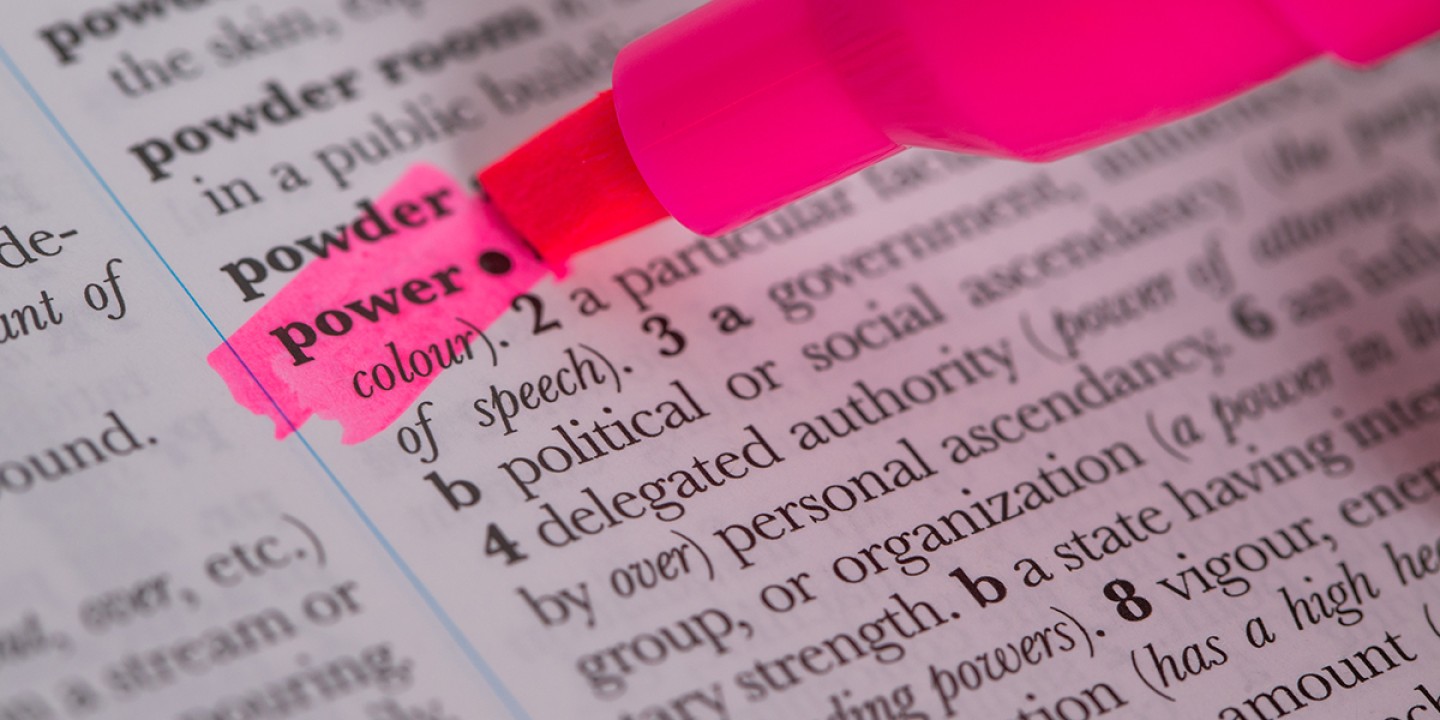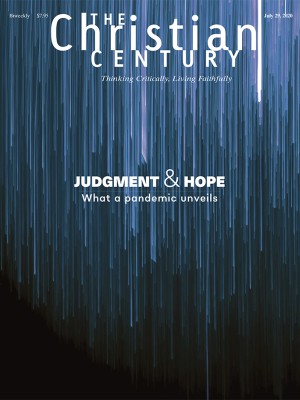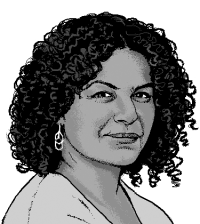What does it mean to worship an all-powerful God?
These times call into question the nature and morality of power.

Every Sunday, I pray the Lord’s Prayer and try to mean it. Lately, though, I’ve been pausing over the word power. What does it mean to celebrate power as a divine attribute?
The hymns I sang so eagerly as a young adult offered up a superhero God who holds unshakable sway over people, places, and events. Many of the miracle stories in the Bible literalize this muscled version of power: a God who curses snakes, parts the sea, rains down bread, slaughters firstborns.
As a child, I watched the adults in my life engage in all sorts of theological gymnastics to square this brand of omnipotence with God’s other most abiding and essential trait: goodness. “God allows it” is the explanation I heard most often: nothing happens without God’s permission. God is perfectly capable of conquering evil and suffering but exercises restraint to accomplish a higher purpose.
Read our latest issue or browse back issues.
This higher purpose was most often a mystery, though we were free to speculate: maybe God allowed the hurricane in order to demonstrate divine power over nature. Maybe God allowed the neck injury in order to build character. Maybe God allowed the bomb to detonate in order to punish sin.
Sometimes it takes years to recognize faulty theology and even longer to admit that it does concrete harm in the world. Sometimes it takes a global pandemic, or a mass outcry against systemic racial injustice, or a planet on the brink of catastrophe. This is a complicated moment in our cultural history, one that calls the very nature and morality of power into question. We in the church are not exempt from this reckoning. If anything, we should be leading the charge.
In so many arenas of our common life, we are witnessing egregious abuses of power. They deny dignity to the poor and kill on the basis of skin color. They use sex to control others; they withhold medical care from people who need it. They use religion to excuse or perpetuate evil.
In such a context, what does it mean to serve an all-powerful God? Is it possible, given the ignoble versions of power we’re witnessing all around us, to rethink our proclamations of divine omnipotence? So often in our human context, power means getting our way, having control over others. What if God’s power is altogether different?
This question feels urgent to me, because I don’t know how to live with a God who daily sits on a fund of immense power, exercising teeth-gritting restraint while the world is ravaged. The question is, do I have to?
Every year, we welcome a tiny, naked, appallingly vulnerable baby into the world, and we call that baby the Son of God. We watch as he grows into a man and spends his short adult life giving power away to the least and the lost. We sit in the shadow of a cross, honoring a brown man who died at the hands of abusive law enforcement to substantiate the paradoxical claim that true power lies in surrender.
Our God is a God who entered humanity red-faced and crying, whose greatest displays of power included riding on a donkey, washing dirty feet, dying of asphyxiation, and frying fish on a beach for his agnostic friends. How exactly did we go from this God of kenosis—a God who surrenders all privilege, immunity, glory, and power for the sake of love—to God as Ironman?
Maybe the fantasies of earth-shattering power we impose on God are just that—our own fantasies. Perhaps an all-powerful God helps us excuse our own passivity and complacency. Why bother getting involved in the world’s sorrows when everything that happens is God’s will? Why lean into our own creativity, why respond to our own deep longings for justice, when an omnipotent God will take care of everything by and by? Why relate to God as someone who longs to be loved, desired, explored, and enjoyed for God’s own sake when we can relate to Superman instead?
The truth is, a God who wields power as human beings typically do is ugly and sinister. What I need is for God to be powerful enough to remain present in the face of horror. To be Emmanuel—God with me. I need a God strong enough to place God’s self squarely in the hot center of the world’s pain—not as one who remains safely anesthetized but as one who knows the terrors of vulnerability, uncertainty, and disappointment from the inside out.
The longer I live in the world and the more I see of its suffering, the more in awe I am that the God we see in Christ has the power to remain present in the midst of so much brokenness. I certainly can’t do it; every time I read the news I am felled—numb, curled inward, and ready to run. What kind of omnipotence is this that enables our God to hold all of the world’s brutality, agony, and sorrow without folding into cynicism or despair? What kind of power fuels such amazing stamina, such risky hope, such healing, life-giving empathy?
I can’t pretend to know. All I know is that this is a power I can live with. It’s a power that accompanies, holds, sustains, and suffers. It’s an almighty power that makes possible the laying down of one’s life for love. All hail this power.
A version of this article appears in the print edition under the title “What kind of power?”







